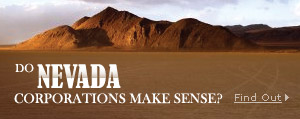ERISA — Employee Retirement Income Security Act
The Employee Retirement Income Security Act of 1974 (ERISA) is a federal law that sets minimum standards for most voluntarily established pension and health plans in private industry to provide protection for individuals in these plans. An employer is not required to set up a pension plan. ERISA is the public law that regulates these plans. Many plans are covered by ERISA, but not all.
ERISA covers retirement, health and other welfare benefit plans (e.g., life, disability and apprenticeship plans). Among other things, ERISA provides that those individuals who manage plans (and other fiduciaries) must meet certain standards of conduct. The law also contains detailed provisions for reporting to the government and disclosure to participants. There also are provisions aimed at assuring that plan funds are protected and that participants who qualify receive their benefits.
There have been amendments to the 1974 Act. You may have heard of COBRA, The Consolidated Omnibus Budget Reconciliation Act of 1985. COBRA provides for the continuance of benefits for a limited period of time that might otherwise be terminated upon certain events concerning employment.
HIPPA is The Health Insurance Portability and Accountability Act of 1996 and was added to make health coverage more secure for patients and employers.
ERISA functions to perform the following:
• Requires plans to provide participants with information about the plan including important information about plan features and funding. The plan must furnish some information regularly and automatically. Some is available free of charge, some is not.
• Sets minimum standards for participation, vesting, benefit accrual and funding. The law defines how long a person may be required to work before becoming eligible to participate in a plan, to accumulate benefits, and to have a non-forfeitable right to those benefits. The law also establishes detailed funding rules that require plan sponsors to provide adequate funding for your plan.
• Requires accountability of plan fiduciaries. ERISA generally defines a fiduciary as anyone who exercises discretionary authority or control over a plan's management or assets, including anyone who provides investment advice to the plan. Fiduciaries who do not follow the principles of conduct may be held responsible for restoring losses to the plan.
• Gives participants the right to sue for benefits and breaches of fiduciary duty.
• Guarantees payment of certain benefits if a defined plan is terminated through a federally chartered corporation, known as the Pension Benefit Guaranty Corporation.
ERISA also does not cover plans maintained outside the United States primarily for the benefit of nonresident aliens or unfunded excess benefit plans.

BUSINESS PLANNING

EDUCATION PRODUCTS

Asset Protecion Training
If you are looking for the most important concepts in Asset Protection, this is where to start! If you need to talk intelligently about protecting your net worth or you are a professional this online training program is for you!

Free Asset Protecion Course
Get our Free Online Asset Protection Video Course.
Learn how to protect yourself like the pros!


Asset Protection in a Nutshell
Clear, concise and straight forward, this e-Book will help you make sound decisions with your business and personal assets..

Protecting Assets - 70+ Video Lessons + 3 Ebooks
This e-course will give you straight forward asset protection advice you can implement now. One of the best asset protection courses available! Includes 70+ video lessons, 3 Ebooks, and 6 example legal documents!

Advanced Estate Planner
The key to a solid Asset Protection Plan is the Estate Plan. This downloadable estate organizer will help you keep track of important information about your assets and important legal documents all in one place.
















